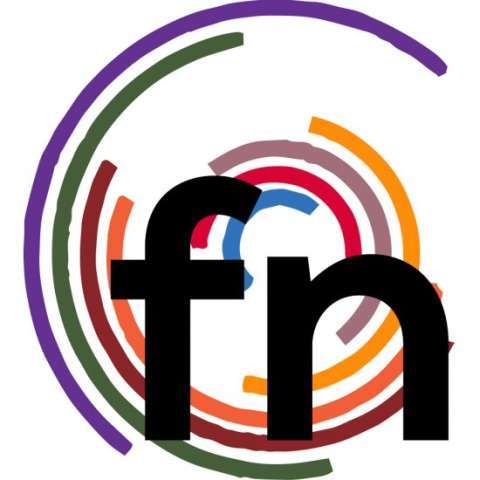If you are trying to make it in music today, it is likely that you're writing at least some of your own songs. This can be a daunting task considering the seemingly inexhaustible volumes of music in the world today. And yet, the hits just keep coming. (Granted not all the music you hear on the radio is created equally, but I digress.) So what can you do to make your songs the best they can possibly be? Let's chat.
This could seem like a pretty basic concept, maybe one from which you feel you've graduated. There is an argument, however, for lifelong learning. There are always ways to improve. And when you improve your musicianship, you will unwittingly (or maybe wittingly) advance your songwriting chops. So, maybe you're a guitar player? How often do you practice on a daily basis?
Practicing scales, learning other artists' lead parts, developing your finger picking' these are just a few ways to get better as an instrumentalist. You're a lead singer? How are your harmonies? Regardless of which instrument is your focus there is always room for improving your knowledge of theory. The more you learn about musical concepts, the more you'll know which rules can be bent or, even broken. Continuing your musical education will not only improve your ability to write, it will make you a more valuable musician in the long run. Need help figuring out where to start? There are music theory workbooks and websites out there for people just like you. Another approach you could take is to make a rough recording' nothing fancy (think iPhone recording in your room)' of you performing your song. This will help you hear the things you like about your song and the things you may want to work on. If you're looking for a higher level of intervention, it may be time to get some lessons or take a class. Or..
2. Collaborate
The grand thing about this time in which you are creating new works of audible art is your access to resources. You don't have to be a lone wolf or a band of lone wolves, as the case may be. In other words, even if you and your band mates write together, you can never underestimate the power of outside input. Some of the best songs were written by two (or more) talented people' people from different backgrounds and influences. Writing with others helps inspire you. You'll think of creative solutions to your hook writing or harmonies you never thought of before. Writing with someone else takes some courage. You're putting yourself out there for the sake of an excellent song. If you're nervous about introducing new songs to the world at large, keep in mind a collaborator can be a safe source of feedback. They are, after all, in the same creative boat with you. You're coming to them because you know you need a fresh perspective. If rapport is developed with your co-writing cohort, you will be able to lend perspective to their songs. Outside feedback from other writers helps you understand your writing strengths and recognize the areas you need to develop. If you're not sure where to find a co-writer or writing community, consider joining a songwriting organization. There are scads websites devoted to helping you locate organizations relatively close to you. If your proximity to the closest organization is prohibitive to meeting in person, you can always join an online community of writers. A note about collaborating: I have a friend who always likes to say, It's easier to turn a car in motion. Meaning, you can more easily change directions if you're already moving. This saying has many a life application, however in this instance I'd like to relate it to what it brings to the songwriting table. In other words, if you want to co-write, start with songs that already have some structure. Bring the melody to a chorus or the lyrics. Something. Don't bring nothing and expect a co-writer to do everything. That's less co-writing and more watching someone else work. Unless you set out to write a song from scratch with someone else, it will behoove you to have some material that needs work. Even if you're starting from scratch, having brainstormed ideas before you meet will help you capitalize on your time together. Not only will this will express a willingness to contribute to the process, you'll be showing respect for your co-collaborator' respect you surely want reciprocated. If all goes well, you'll learn a lot and perhaps write with others in the future. Winning!

3. Just Write
At the end of the day, songwriting is a skill that has to be developed. The more you practice writing, the more you'll understand what kind of writer you are. You'll start to see a kind of songwriting identity emerge. It's not easy, though. I don't know about you, but it can be intimidating to have a blank page before me. Sometimes when I can't think of what I want to write about I still just have to put words to paper and get the ideas unstuck. In terms of lyrical writing, it may be necessary to journal or just write down a stream of consciousness for a bit. This may feel weird to you, especially if you're pretty structured. Writing anything and everything that comes to mind can really spark a fun idea or remind of something you wanted to say. If you're reading a book or magazine (or pamphlet), try taking a couple of sentences from the literature and boiling it down to a couple of words. Say it in a new way.
4. Listen And Get Inspired
If you're not the type who writes your lyrics first, but still find yourself stuck trying to find a chord progression into the bridge or pulling in a seamless verse, take heart! There is help for you too. The exercises for melody writing are a little more abstract, but just as useful. Walk away from your efforts for a bit' just a pause' and start listening to the music from artists you consider to be your influences. When you listen to a given song, don't just turn on the music in the background. Really listen. Right from the beginning take note of the structure of the verse and compare it to the chorus. Does the rhythm pattern change? What are the notes doing from verse to chorus in the context of the rhythm? Is there a lift? Are note values getting longer in the chorus? Do this with a handful of songs, or until you formulate a plan for your song's melody. Really study these songs. You might even look outside your favorites. Listen to new genres you might not have considered. Another exercise you can do is just start playing. Play (or sing) a song you know or a portion of the song you have nailed down and just keep playing it over and over. It's a form of musical stream of consciousness. Jam for a while and just see what happens. If you're singing a song, nix the lyrics and let the melody carry you where it will. From an instrumental stand point, this requires you to have at least a measure of proficiency. You need to get comfortable enough on your instrument to be able to jam without playing the same four chords over and over again. If you want to play the same four chords, go for it.
5. Know Your Strengths
This may not be what you want to hear. And far be it from me to tell anyone to give up on their goals. But, sometimes despite a person's musical talent, their writing is just not up to snuff. There are a couple ways to proceed if this is you. One: keep working on it. As it was said earlier, songwriting is a skill. Some people are more naturally gifted from the get-go, but no matter who you are, the more you write the better a songwriter you'll become. Keep working on it until you're satisfied. Two: There is no shame in seeking out little (or un-) known songs to cover. You can do this in lieu of writing your own songs or while you are honing your writing craft. You don't have to dig very deeply to find many popular artists who perform songs written by others. Whether you look through a catalog, like ASCAP, or find an undiscovered writer in your community, you could take someone's song and make into your own amazing version. And, who knows? You could be helping up-and-coming songwriters by performing their songs. There's potential for musical symbiosis. Good vibes all around.
From the FestivalNet Newsletter Archives



